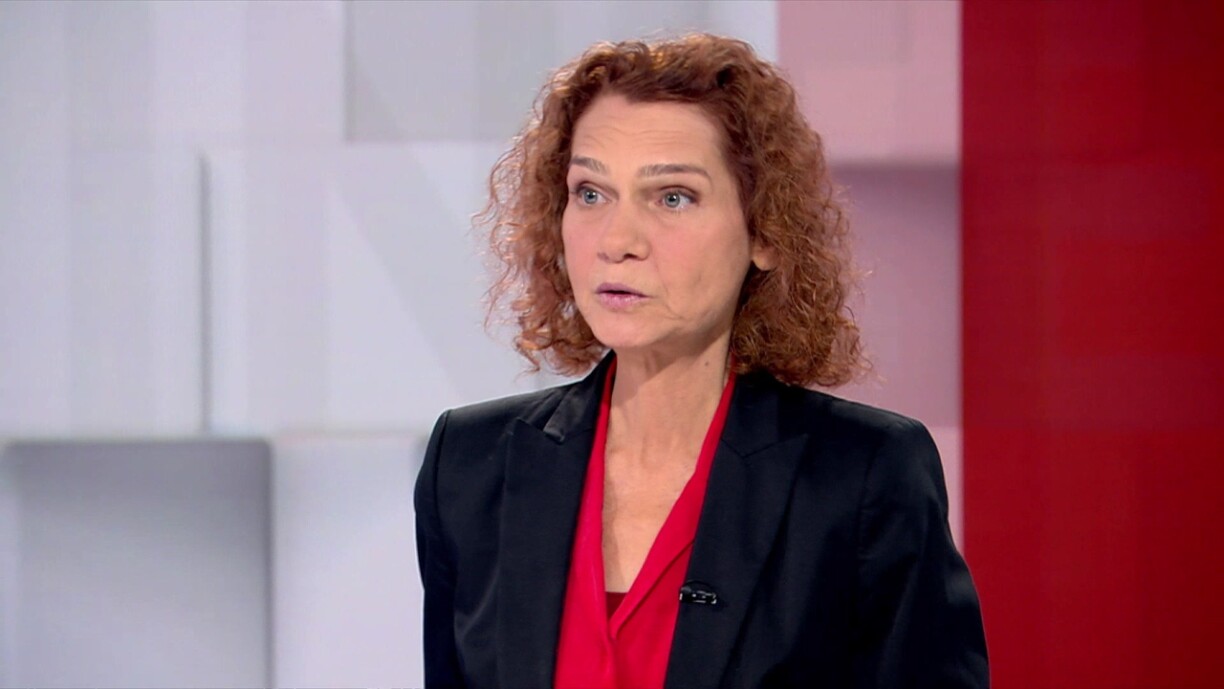
Last week, President Recep Tayyip Erdoğan passed a new law, known as the " disinformation law ", on the possibility of restricting freedom of expression. After adding restrictions to the traditional press, the autocrat is now trying to silence his critics on social media.
Asli Erdogan, a journalist who shares a name with the Turkish president, was once an award-winning writer in Turkey until her arrest in 2016 shortly after the failed coup. She was imprisoned for 132 days, during which she was denied access to vital medication and treatment.
She now lives in exile in Berlin and was invited to Luxembourg by the Pierre Werner Institute and the State Theatre for the performance of an opera based on her texts. She also took the time to speak to RTL’s Caroline Mart about being forced out of her homeland, the Turkish repressive regime, President Erdogan and how Europe should deal with him.
Good evening. Your crime was writing the truth - was this enough to risk a lifetime of jail in Turkey?
I think I was one of the first chosen victims to demonstrate the power of the government, the ruling system. A life sentence - that was a big shock, and just a few articles used as evidence against me.
How is it to carry the same name as your torturer?
Well it’s a common name, it’s not just the two of us. And I was not at peace with it even before because of the meaning - it means “born as a man”. But like many things in life, I did not choose it.
Why are autocrats and dictators so afraid of words, writers and intellectuals?
I think it’s an old saying - if you don’t know the power of words you don’t know the power of humans. I think deep down all the dictators are afraid of the human heart.
They tried to break you in prison, in isolation. Can those wounds heal, in your soul and body, or do you stay somehow in prison for the rest of your life?
I wrote a novel six years before going to prison, Das Haus aus Stein (The House of Stone). After each trauma I do believe it’s a part of us which survives, and a part which remains in the stone building, in prison, in the abstract metaphorical prison, always.
And you have paid the high price of exile.
I pay by becoming harsher and more callous, I think all suffering is worth something if I can turn it into art and also empathy. If I don’t understand or empathise with the suffering of others, then all my pain was all for nothing. Sometimes after big traumas, I feel like I’m getting harsher, adapting to this harsh world. To survive you have to adapt.
One of the questions we have asked ourselves for the last few months is how crazy is Putin. Should we be asking the same about Erdogan as there are quite a few similarities.
Well I could get another life sentence for answering this. Psychologically he is ok, for censorship, but I think that power changes people. Deep down their psychology as well. Especially these omnipotent people who are problematic from the start. Probably different from the 19th and 20th century dictators in that they are more pragmatic, less ideological, changing from one ideology to the other as easily as you’d change a coat.
Is it power for power’s sake?They have big popularity and charisma. It’s a big mystery to me. it’s so clear to see they are dangerously obsessed with power and they can do anything, they lack empathy which is what the world needs so much today.How much real politics can we have in terms of crisis? Both have cleverly create dependencies, Putin with energy and gas, Erdogan with refugees. The EU made a deal with him, he gets money for making sure they don’t come to Europe - are we naive, or accomplices?
It’s a difficult question. I would criticise Europe for being short-sighted and not looking further ahead, and in fact being egoistic sometimes.
Where can we draw the line? He’s playing two parties, he’s a member of NATO but also wants to become a part of the “Shanghai Cooperation Organisation”. When should NATO or Europe say “stop”?
I think they should have said stop long ago. Since 2016 there is almost no democracy left in Turkey. The judicial system has been crushed. With a phone call you can get a life sentence, whether you’re the most famous journalist, an academic, the European Union knows this better than I do. They see the Turkish aggression in Iraq, Syria, the bullying in Greece. Now Erdogan is calling for war. They have accepted far too much and people are letting him grow and grow.
Here in Europe we are talking about inflation of 6 to 10 or 12%. In Turkey it is 80%, what does that mean for people living there?
There is a huge economic crisis. 70% of the population lives on less than 500 euros a month compared to European standards - more or less starvation level. There is too much pressure on Turkish people from all sides. Police, economics...all I hope is that there is a slightly more democratic election next time, but I really can’t predict.
Do you still hope to go back one day?
Well of course my literature is very much a literature of exile, I was born into it even in Turkey. But as I am a political exile, it’s an imaginary homeland. And I have health problems which limit my horizon. Of course I want to go back and spend the last years of my life in Istanbul, but...
We hope the best for you, thank you very much.
RTL-News: Komplizéiert Relatiounen tëscht EU an Tierkei - Den Opportunist vum Bosporus